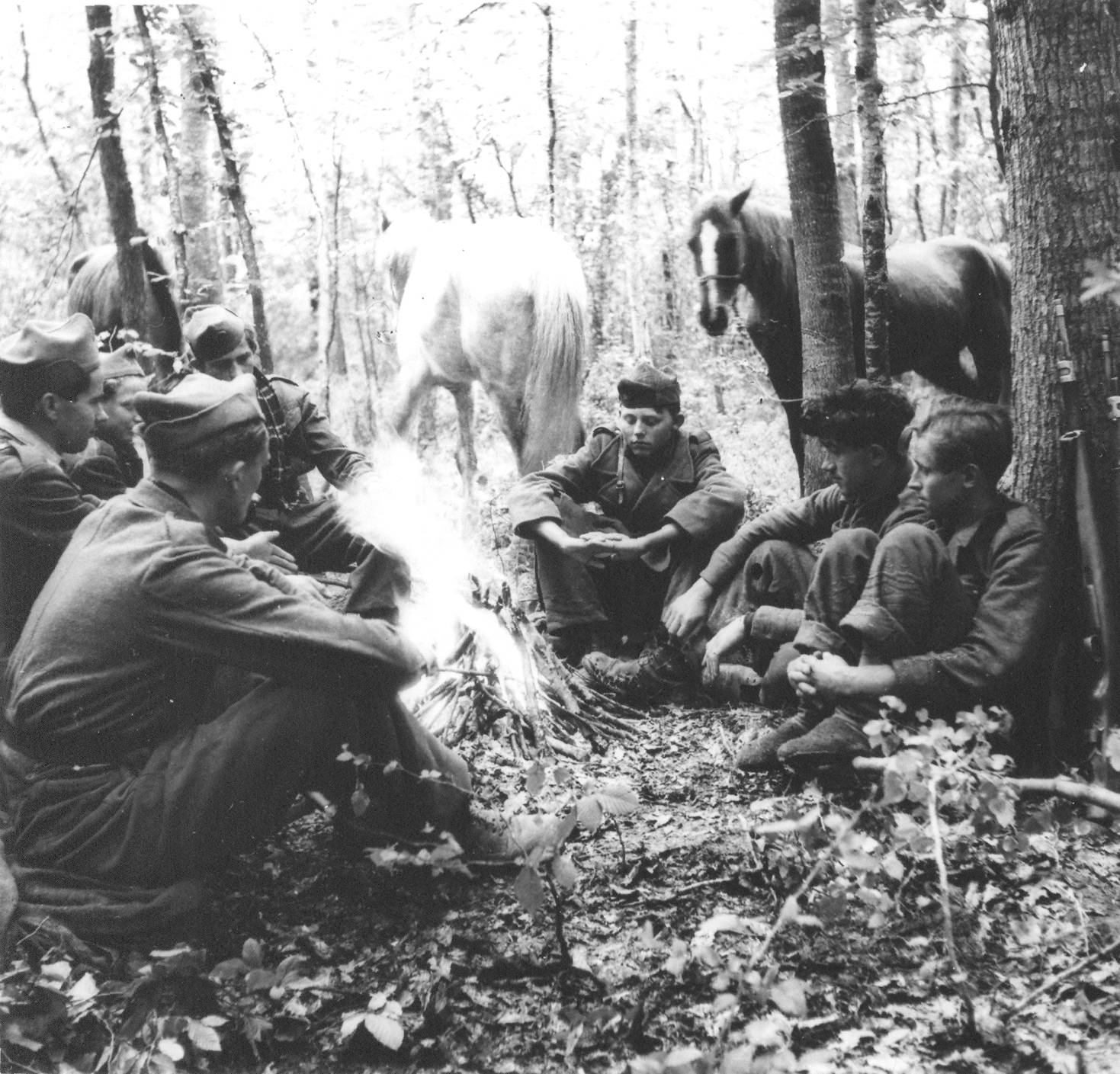“Forests, forests, our greatest thanks to you”: Nature, the closest ally of the partisans
Forests, forests,
Our greatest thanks to you,
Freedom was born in you.
Partisans marching over the “forests and mountains of our proud country”, still evokes the most emblematic image of the Yugoslav People’s Liberation Struggle, whose warfare tactics fundamentally relied on the natural environment. It was not by chance that this Yugoslav adaptation of the WW1 Red Army song features “forests” instead of “valleys”, a common motiv of partisans songs, prints, and tales. “Forests, forests”, a folk song from the north Croatian region of Međimurje, addresses forests as active agents and companions of the struggle. The forest is where “freedom is born”, not just for Croats or Yugoslavs, but “for all the small and brave peoples”. Despite its dangers and mysteries, forests suddenly became sanctuaries providing shelter, food and logistics to civilians and partisans during WW2. This alliance went beyond the practicality of warfare tactics, showing transformative, emancipatory potential of the partisans’ and the oppressed’ cohabitation with nature.
Partisan units, relying on guerrilla warfare tactics in the first stages of the war, hugely benefited from the natural features of Dinaric mountains and karstic terrain, such as hideouts, shelters, observations spots, barriers. The knowledge of the local population was another crucial element of successful resistance: old forest trails and shortcuts, food, water, medical herbs – all of which was vital to keep the resistance alive, enabling the partisan movement to turn the difficult landscapes to their favor. This experience was not unique to Yugoslavia – both in the Eastern European countries (Belarus, Poland, Ukraine/USSR), and in some regions of the West (Italy, France, Norway) armed resistance and civilian refuge were closely related to mountains and forests.
Partisans’ attachment to nature was used as a counter-propaganda tool, stigmatising them as savages, bandits or outcasts, especially targeting women in their ranks. Closeness to nature served to dehumanise Yugoslav partisan, similar to indigenous peoples of European colonies whose resistance also relied on natural environment and resources. Thus the typical colonial gaze on the “uncivilized other”, paramount to white supremacist ideology such as Nazism.
After the war, in socialist Yugoslavia, forests, whole mountains or natural areas, where key wartime episodes had occurred, were protected and listed as heritage. Wartime structures built in the forests, caves or the material remains of the partisans camps and hospitals were conserved or consecrated by monuments. Trees were commonly used as symbolic motives in monuments, while new trees were planted as a ritual practice of honouring fallen partisans.
Sanja Horvatinčić




